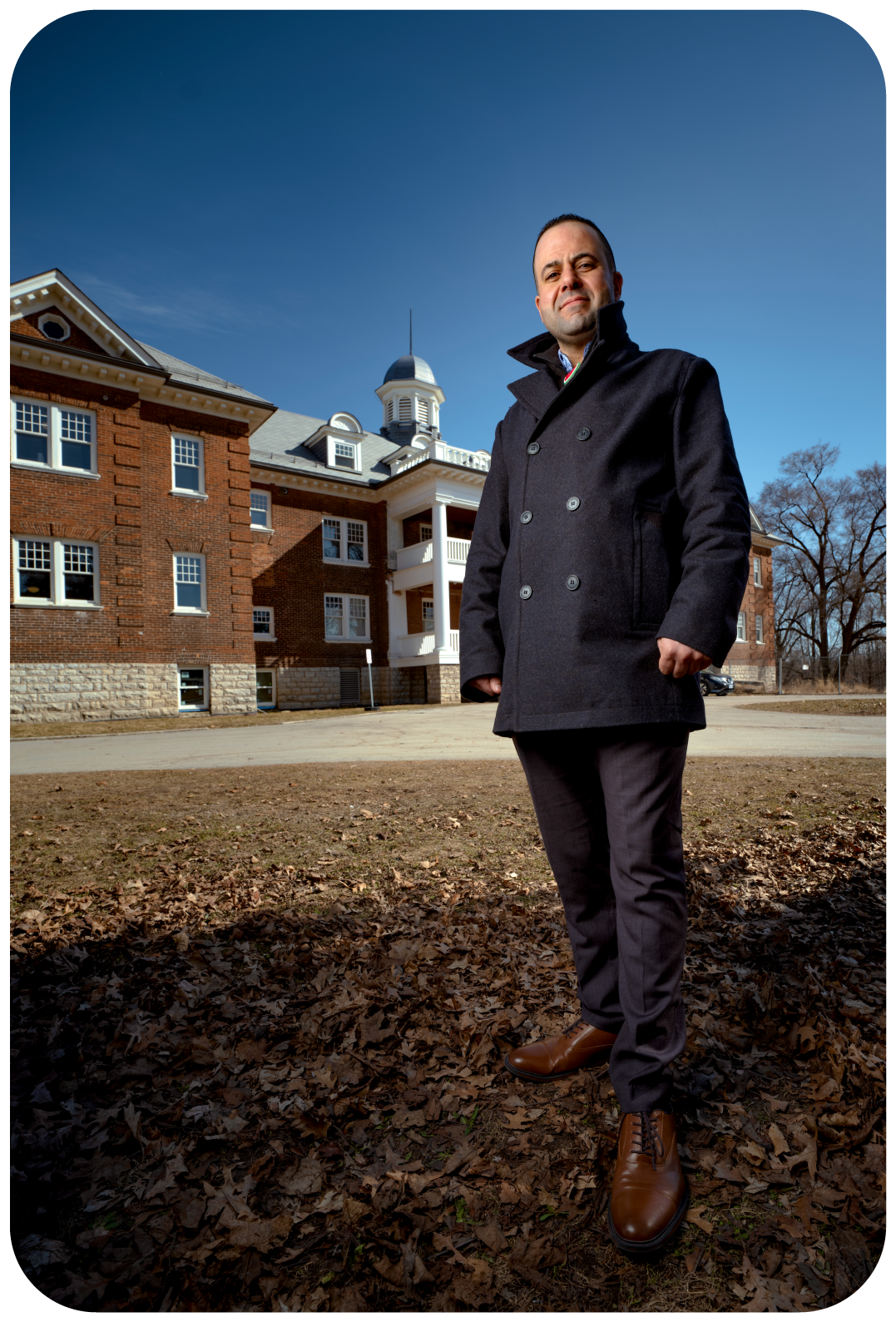We Are Here,
But We Are Also There
COLLABORATIONIzzeddin Hawamda's Statement Izzeddin Hawamda
Refugee from Palestine
PhD, Peace and Conflict Studies, University of Manitoba
Aaron McKay
Anishinaabe of Rolling River First Nation and Swan Lake First Nation
BA and BEd, Brandon University
The world I was born into, the one I grew up in, made no sense. Surrounded by such beauty: the land full of rolling hills, green pastures, clear streams, and strong olive trees, the community full of welcoming neighbours who became extended family, the sun, the rain, the animals on the farm. That is home. Also surrounded by armed soldiers, giant military tanks, stolen land, homes destroyed, a 25-foot wall preventing the freedom to travel, daily checkpoints, ID checks on the way to school, death, sadness, anger. That, too, is home. In reflecting back, I am acutely aware of my desire to make sense of the dichotomy in which I existed. In my village, my family-owned farmland and we planted olives. My farmland extended beyond the sun. As a young boy, I would walk all over my land with my grandparents touching the faces of the olive tree and the fig tree. During the olive baking season in Palestine in the month of November, my grandfather would take me to help him pick olives and water the lemon tree, during this time my grandfather we'll talk about our family used to have land but since the settlement was built on our land in 1986 my family along with many families from our village we are not allowed to visit their lands or plant them. Every time my grandfather talked about his land tears drip down his face and longing for his trees became evident on his thick hands. As a young boy I never understood the pain and the trauma that my grandfather held within his body and mind due to being separated from his land. After a long day of picking olives, my grandfather and I would walk back home and talk about how occupation made it impossible for people to connect with one another.
Aaron McKay's Statement I was born into a maze, and I spent my life navigating it. On my journey through this maze, I have met many faces and seen many disappear into the abyss of the many twists and turns. I shared laughter and shed many tears while traveling through this place, and, for a moment, I thought it would suffocate me. That was until I found my home in my father's lodge, in the songs of my ancestors, and in the loving embrace of the spirits of the land. I still walk this maze, but I see beyond its confines. I am creating home.
Multimedia Learning Resource
AUDIO ONLY:more resources:


